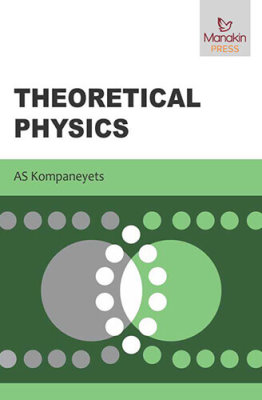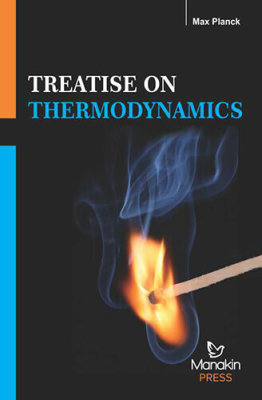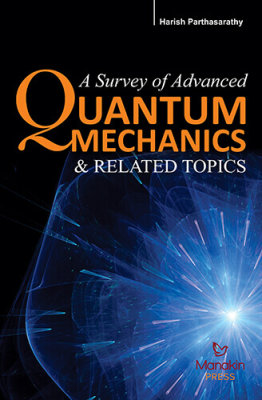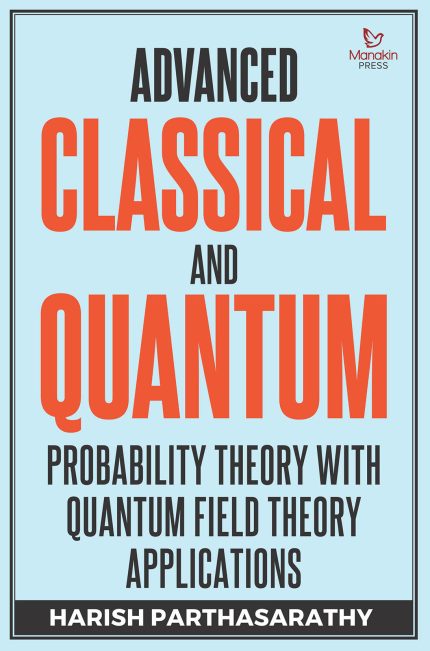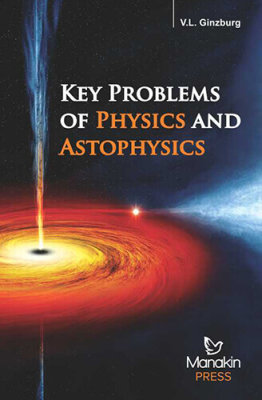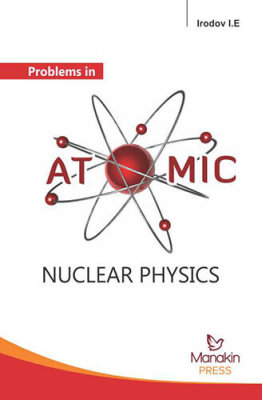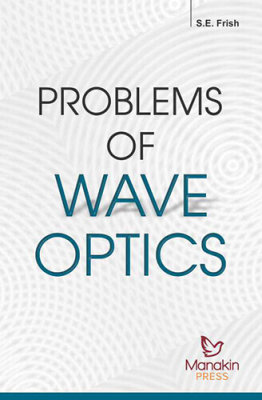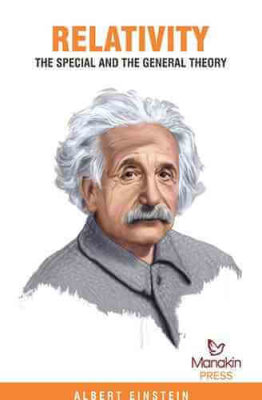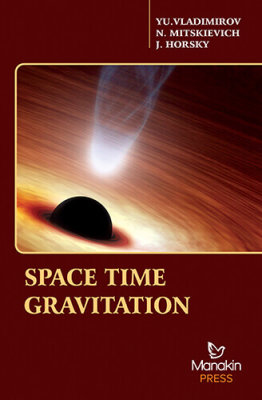Max Planck | Category: Physics
Binding Type: Paperback Binding
Book Details
ISBN: 9789386677129
YOP: 2018
Pages: 352
Order also on
An introductory text-book on Thermodynamics for students who have taken elementary courses in Physics and Chemistry, and are familiar with the elements of the Differential and Integral Calculus. Three distinct methods of investigation may be clearly recognized in the previous development of Thermodynamics. The first penetrates deepest into the nature of the processes considered, and, would be designated as the most perfect. Heat, according to it, is due to the definite motions of the chemical molecules and atoms considered as distinct masses, which in the case of gases possess comparatively simple properties, but in the case of solids and liquids can be only very roughly sketched. This kinetic theory, founded by Joule, Waterston, Kronig and Clausius, has been greatly extended mainly by Maxwell and Boltzmann. Obstacles, at present unsurmountable, however, seem to stand in the way of its further progress. These are due not only to the highly complicated mathematical treatment but principally to essential difficulties, in the mechanical interpretation of the fundamental principles of Thermodynamics.
The second method, developed by Helmholtz. It confines itself to the most important hypothesis of the mechanical theory of heat, that heat is due to motion, but refuses on principle to specialize as to the character of this motion. This is a safer point of view than the first, and philosophically quite as satisfactory as the mechanical interpretation of nature in general, but it does not as yet offer a foundation of sufficient breadth upon which to build a detailed theory. Starting from this point of view, all that can be obtained is the verification of some general laws which have already been deduced in other ways direct from experience.
The third treatment of Thermodynamics has hitherto proved the most fruitful. This method is distinct from the other two, in that it does not advance the mechanical theory of heat, but, keeping aloof from definite assumptions as to its nature, starts directly from a few very general empirical facts, mainly the two fundamental principles of Thermodynamics.
This last, more inductive, treatment, which is used exclusively in this book, corresponds best to the present state of the science. It cannot be considered as final, however, but may have in time to yield to a mechanical, or perhaps an electromagnetic theory. Although it may be of advantage for a time to consider the activities of natural Heat, Motion, Electricity, etc. —as different in quality, and to suppress the question as to their common nature, still our aspiration after a uniform theory of nature, on a mechanical basis or otherwise, which has derived such powerful encouragement from the discovery of the principle of the conservation of energy, can never be permanently repressed.
PART I- FUNDAMENTAL FACTS AND DEFINITIONS
I. Temperature
II. Molecular Weight
III. Quantity of Heat
PART II- THE FIRST FUNDAMENTAL PRINCIPLE OF THERMODYNAMICS.
I. General Exposition
II. Applications to Homogeneous Systems
III. Applications to Non-Homogeneous Systems
PART III- THE SECOND FUNDAMENTAL PRINCIPLE OF THERMODYNAMICS.
I. Introduction
II. Proof
III. General Deductions
PART IV- APPLICATIONS TO SPECIAL STATES OF EQUILIBRIUM.
I. Homogeneous Systems
II. System in Different States of Aggregation
III. System of any Number of Independent Constituents
IV. Gaseous System
V. Dilute Solutions
An introductory text-book on Thermodynamics for students who have taken elementary courses in Physics and Chemistry, and are familiar with the elements of the Differential and Integral Calculus. Three distinct methods of investigation may be clearly recognized in the previous development of Thermodynamics. The first penetrates deepest into the nature of the processes considered, and, would be designated as the most perfect. Heat, according to it, is due to the definite motions of the chemical molecules and atoms considered as distinct masses, which in the case of gases possess comparatively simple properties, but in the case of solids and liquids can be only very roughly sketched. This kinetic theory, founded by Joule, Waterston, Kronig and Clausius, has been greatly extended mainly by Maxwell and Boltzmann. Obstacles, at present unsurmountable, however, seem to stand in the way of its further progress. These are due not only to the highly complicated mathematical treatment but principally to essential difficulties, in the mechanical interpretation of the fundamental principles of Thermodynamics.
The second method, developed by Helmholtz. It confines itself to the most important hypothesis of the mechanical theory of heat, that heat is due to motion, but refuses on principle to specialize as to the character of this motion. This is a safer point of view than the first, and philosophically quite as satisfactory as the mechanical interpretation of nature in general, but it does not as yet offer a foundation of sufficient breadth upon which to build a detailed theory. Starting from this point of view, all that can be obtained is the verification of some general laws which have already been deduced in other ways direct from experience.
The third treatment of Thermodynamics has hitherto proved the most fruitful. This method is distinct from the other two, in that it does not advance the mechanical theory of heat, but, keeping aloof from definite assumptions as to its nature, starts directly from a few very general empirical facts, mainly the two fundamental principles of Thermodynamics.
This last, more inductive, treatment, which is used exclusively in this book, corresponds best to the present state of the science. It cannot be considered as final, however, but may have in time to yield to a mechanical, or perhaps an electromagnetic theory. Although it may be of advantage for a time to consider the activities of natural Heat, Motion, Electricity, etc. —as different in quality, and to suppress the question as to their common nature, still our aspiration after a uniform theory of nature, on a mechanical basis or otherwise, which has derived such powerful encouragement from the discovery of the principle of the conservation of energy, can never be permanently repressed.
PART I- FUNDAMENTAL FACTS AND DEFINITIONS
I. Temperature
II. Molecular Weight
III. Quantity of Heat
PART II- THE FIRST FUNDAMENTAL PRINCIPLE OF THERMODYNAMICS.
I. General Exposition
II. Applications to Homogeneous Systems
III. Applications to Non-Homogeneous Systems
PART III- THE SECOND FUNDAMENTAL PRINCIPLE OF THERMODYNAMICS.
I. Introduction
II. Proof
III. General Deductions
PART IV- APPLICATIONS TO SPECIAL STATES OF EQUILIBRIUM.
I. Homogeneous Systems
II. System in Different States of Aggregation
III. System of any Number of Independent Constituents
IV. Gaseous System
V. Dilute Solutions
| Weight | 0.43 kg |
|---|---|
| Dimensions | 21.5 × 14 × 1.7 cm |
| yop |
2018 |
| subject-category |
Physics |
| isbn |
9789386677129 |
Related products
